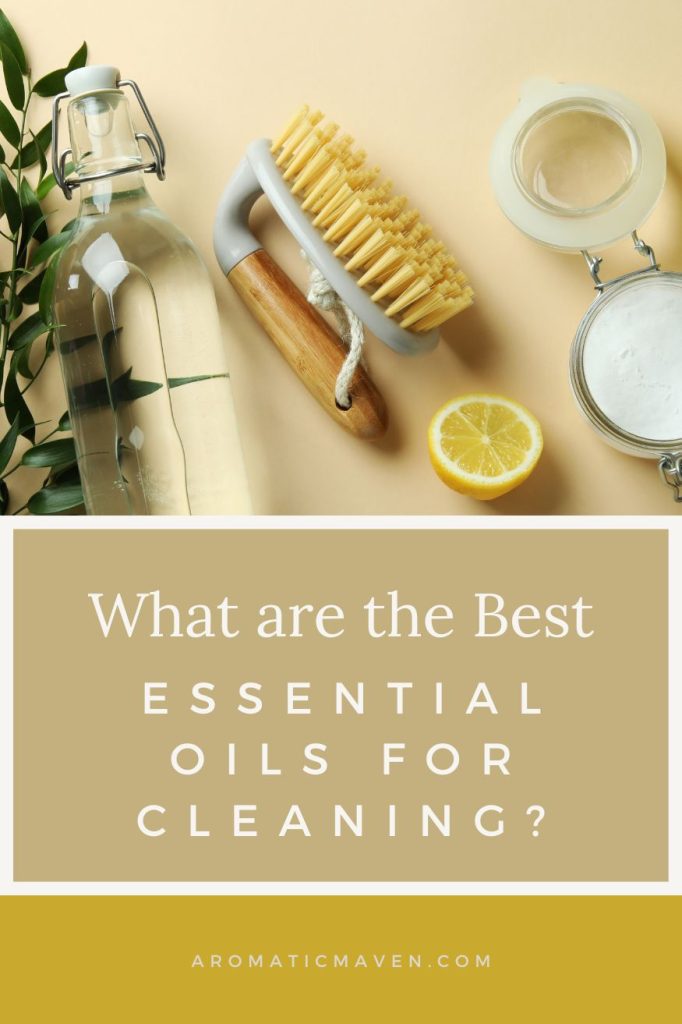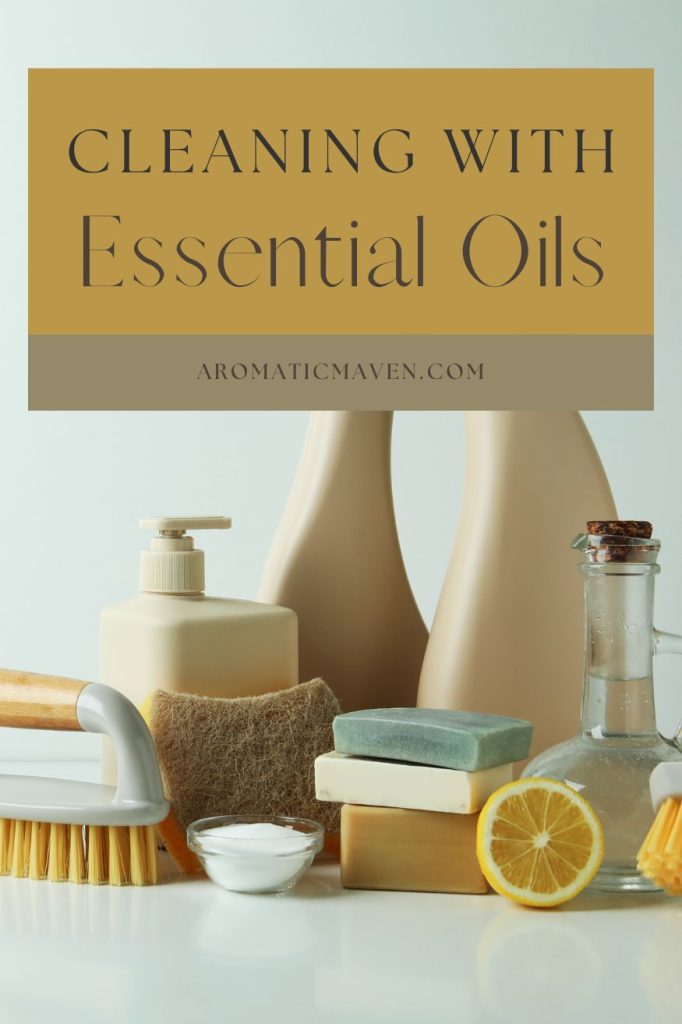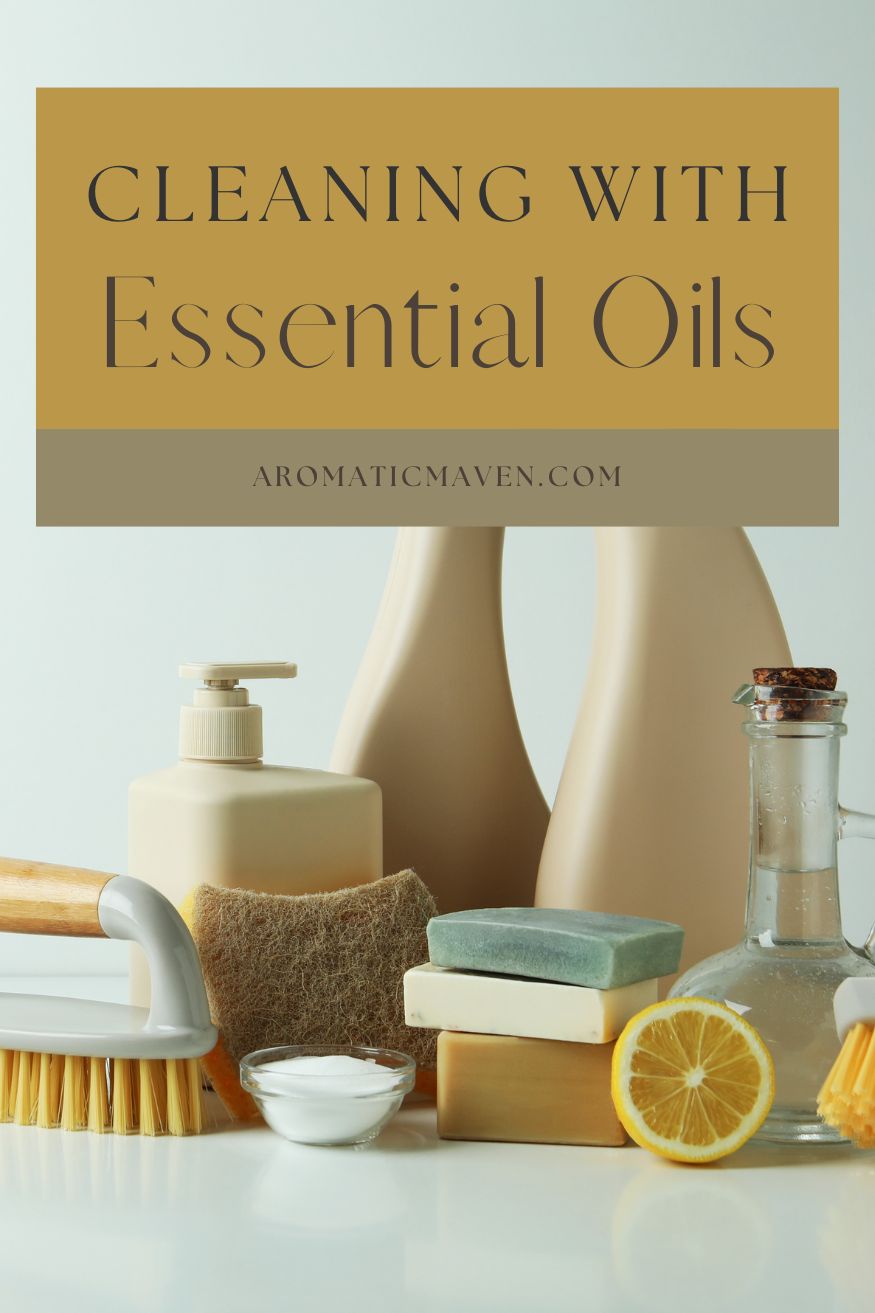What Are the Best Essential Oils for Cleaning?
In a world where chemicals and synthetic cleaning agents abound, it’s no wonder that many people are seeking natural alternatives for maintaining a clean and fresh living environment. Enter essential oils – potent extracts derived from plants with powerful cleaning properties and captivating aromas. These natural wonders not only make your home sparkle but also contribute to a healthier and more sustainable lifestyle. In this blog post, we’ll explore the best essential oils for cleaning and how to incorporate them into your cleaning routine.
The majority of essential oils possess the properties effective in cleaning, although some are more useful than others. Some are also more toxic so it is important to know the properties of each individual oil, its suitability for cleaning and any cautions for use.

All about Essential Oils for Cleaning
Antiseptic and Bactericidal
Shirley Price, in her book “Aromatherapy Workbook,” states that all essential oils are antiseptic in one way or another. In addition, Valerie Ann Worwood, in her book “The Complete Book of Essential Oils and Aromatherapy,” states that many essential oils are bactericidal, too. Antiseptic and bactericidal oils are useful for cleaning because they protect against the growth of bacteria and other infections in the home.
Scientific Studies
Price cites scientific studies that support the effectiveness of antiseptic and bactericidal essential oils. Another author, Jean Valnet, a French doctor who spent much of his life experimenting and studying the effectiveness of essential oils, published “The Practice of Aromatherapy” in 1980 in which he stated that most essential oils are at least as powerful as carbolic acid. In 1989, a study published in the “Journal of Horticultural Science,” found that savory and tarragon essential oils were capable of prohibiting the development of many types of bacteria that threatened health.
Kitchen and Bathroom
Essential oils are useful in cleaning the kitchen and the bathroom. Price suggests using lemon, tea tree, cedarwood and petitgrain essential oils for cleaning jobs in the kitchen such as for wiping down surfaces and cleaning floors. In addition, Worwood suggests eucalyptus, pine, thyme and cypress essential oils for kitchen and bathroom use.
Living Room and Bedroom
Use essential oils to clean the living areas and bedrooms of the house. Worwood suggests using geranium, bergamot, lavender, clary sage, nutmeg and ylang ylang essential oils for cleaning jobs in the living room and bedroom. Essential oils used in a spray or diffuser will freshen up carpets, bedlinens, and drawers, in addition to protecting against bacteria and germs.
How to use essential oils for cleaning
Ensure essential oils are kept out of the reach of children and pets. Pay attention to any contraindications for use with each individual essential oil. For kitchen and bathroom use, add three to four drops of preferred essential oils to a bowl of water and wipe down surfaces with a cloth rinsed in the water. Add 6 to 10 drops of essential oils to 30 oz. of water for room sprays and four to 10 drops of preferred essential oils to diffusers.
Distilled from herbs and other plants, essential oils serve as highly concentrated and often fragrant oils designed to capture the essence of the original plant. These natural extracts can be used to create household disinfectants, cleaners and deodorizers. Research oils fully before use, as essential oils can be flammable and also can cause allergic reactions for some individuals.

What are some common essential oils for cleaning?
Pine – Pine essential oil can serve as an effective and aromatic bathroom cleaner. Karyn Siegel-Maier, in “The Naturally Clean Home: 150 Super-Easy Herbal Formulas for Green Cleaning,” recommends a pine essential oil blend as a disinfectant cleaner. To create the mixture, blend 2 cups water, 2 tsp. borax, 8 drops pine essential oil and 4 drops cedar essential oil. Pour the mixture into a plastic spray bottle and shake the bottle to blend the ingredients with each use. Spray on bathroom surfaces, and then wipe off with a damp cleaning cloth.
Lemon – Lemon or lemongrass essential oil can be used to create a citrus-scented dishwashing liquid. Siegel-Maier suggests this blend as a fruity alternative to your traditional liquid soap. Blend 22 oz. liquid Castile soap, 15 drops lemon or lemongrass essential oil, 6 drops lavender essential oil and 5 drops bergamot essential oil. Pour the mixture into a 22 oz. plastic squirt bottle and shake the bottle to blend the ingredients before use. To use, Siegel-Maier recommends adding about 2 tbsp. of the blend to your dish water.
Eucalyptus – Eucalyptus essential oil can serve as a potent and fragrant floor cleaner. Colleen K. Dodt, in “The Essential Oils Book: Creating Personal Blends for Mind & Body,” shares a floor cleaning solution: Blend 20 drops eucalyptus essential oil with 20 drops Murphy’s oil soap in 2 gallons of water. Use as you would your regular floor cleaning solution. You can substitute eucalyptus essential oil with other essential oils, such as lavender, lemon, pine or rosemary.
Lavender – Lavender oil can be used to create an aromatic air freshener for use throughout your home. Mary Findley and Linda Formichelli, in “The Complete Idiot’s Guide to Green Cleaning,” recommend an air freshener and deodorizing blend. Combine 10 drops lavender essential oil with 1 cup distilled water and pour into a spray bottle. To use, shake well, then spray lightly on your carpet. For variety, you can substitute essential oils of lemon, lime, pine or tea tree.
By harnessing the power of essential oils, you can elevate your cleaning routine to a whole new level. Not only are these oils effective at removing dirt, grime, and bacteria, but they also infuse your home with delightful natural scents. As you integrate essential oils into your cleaning practices, you’ll be taking a step towards creating a healthier, eco-friendly, and aromatic living environment.
Remember to always follow safety guidelines and dilution ratios when using essential oils, as some oils can be irritating to the skin if used undiluted. Happy cleaning!
